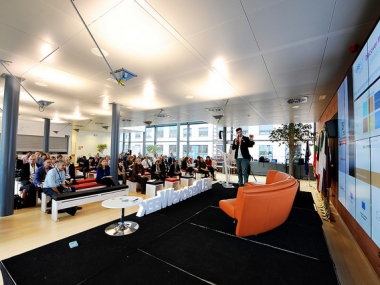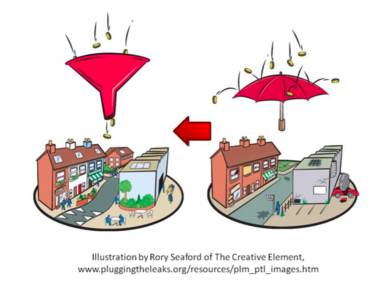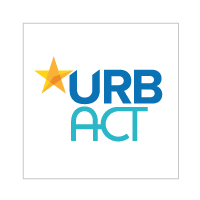Conclusions and presentations of URBACT workshops during the European Week for Regions and Cities
Edited on
03 July 2019This year the Committee of the Regions and the DG Regional and Urban Policy organised the 15th European Week for Regions and Cities in Brussels from 9 to 12 October 2017. Under the headline 'Regions and cities working for a better future’ more than 130 workshops took place presenting good practices and solutions on issues related to urban and regional development.

During this week, URBACT was present with two workshops:
“How can good city practices be transferred? Join the new URBACT Transfer Networks!” on 10/10/2017 (2.30-5.00pm), Committee of the Regions, Jacques Delors, Atrium 5, Brussels. Code: 10C48
The workshop presented some of the 97 URBACT-labelled Good Practices from cities across Europe that have been recently selected by the URBACT Programme among 270 submitted proposals. The 97 URBACT-labelled Good Practices fulfil four main criteria on integrated approach, participative approach, evidence that the practice has brought positive results locally, and on the transferability of the practice to other cities.
Based on these Good Practices up to 25 URBACT Transfer Networks will be funded for cities interested in transferring them to their local contexts.
More information about the new Call for Transfer Networks, open from 15 September 2017 to 10 January 2018, can be found on: http://urbact.eu/open-calls-networks
Presentations of the speakers during the workshop can be found here below:
-The Good Practice "Intermediation service for people in the process of evictions and occupancies" from Barcelona (ES), presented by Maité Arrondo
-The Good Practice "Refugee Solidarity" from Ghent (BE), presented by Kathleen van de Kerckhove
-The Good Practice "Progressing procurement practice through spend analysis" from Preston (UK) on Public Procurement, presented by Tamar Reay
-The presentation of the URBACT Programme
-The presentation of the Call for Transfer Networks
 “Addressing urban and regional challenges through public procurement” on 11/10/2017 (2.30-5.00pm), Committee of the Regions, Jacques Delors, Atrium 5, Brussels. Code 11C120
“Addressing urban and regional challenges through public procurement” on 11/10/2017 (2.30-5.00pm), Committee of the Regions, Jacques Delors, Atrium 5, Brussels. Code 11C120
Every year, around 14% of EU GDP is spent by public authorities in the purchase of services, works and supplies through public procurement. This process has often been characterised by challenges around bureaucracy, and related to this the inability of officers to take risks. Even if sometimes it is challenging or misinterpreted, public procurement can be a unique opportunity to address key economic, social, and environmental challenges. As well as the more traditional and historical emphasis on compliance and cost, the European Procurement Directives of 2014 are framed around principles of flexibility, supporting SMEs and using procurement to reach social and environmental goals.
ESPON, INTERACT, INTERREG EUROPE, and URBACT programmes have joined forces to provide examples of progressive procurement that emerge across Europe and to reflect on how other cities and regions can utilise procurement as a lever for change and address historical challenges.
Speakers and participants explored examples of how challenges can be addressed at the various stages of the cyclical process of public procurement: public procurement of innovation (linking to commissioning), spend analysis (linking to procurement strategy), the use of social and environmental criteria (linking to tendering and contract award), and realising economic, social and environmental impact through procurement (linking to delivery and monitoring).
Presentations of this workshop by Matthew Jackson, URBACT Expert; Anna Lupi, DG Grow; Dorota Wrobel, City of Lublin; Christof Schremmer involved in ESPON programme; Marjana Dermelj involved in Interreg Europe programme; Florin Neculcea, INTERACT Secretariat, are available HERE.
 Submitted by URBACT on
Submitted by URBACT on




